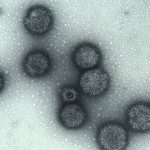Présentation
Despite intensive research efforts on arthropod-borne viruses (arboviruses), many aspects related to immunological consequences of arthropod vector-derived salivary factors are unknown, especially those occurring at the injection site. During a blood meal, arboviruses are deposited into the host skin together with saliva containing a wide array of biologically active, yet poorly understood molecules.
Mounting evidence indicates that many arthropod viruses have evolved to take advantage of specific salivary proteins to facilitate the establishment of an infection. Arboviruses bypass the barrier function of the skin which becomes a port of entry, a place of residence and an exit site. Despite the importance of the skin as an entry site for these viruses, our current knowledge of the skin’s immune system lags behind what we know about immune events in the spleen, lymph nodes or blood. The events that occur at the bite-site are still poorly understood and insights into processes such as the modulation of human immune functions by arthropod saliva may provide new targets to combat arboviruses.
Dengue (DENV) and Chikungunya (CHIKV) viruses are two emerging arboviruses that are transmitted to humans by the bite of Aedes sp. mosquito vectors. The purpose of the KerARBO proposal is to shed light on early interactions of DENV and CHIKV with the skin’s immune system, taking into account any changes induced by Aedes albopictus saliva.
KerARBO proposal involves 3 partners (IRD, Pasteur Institute and CNRS)


